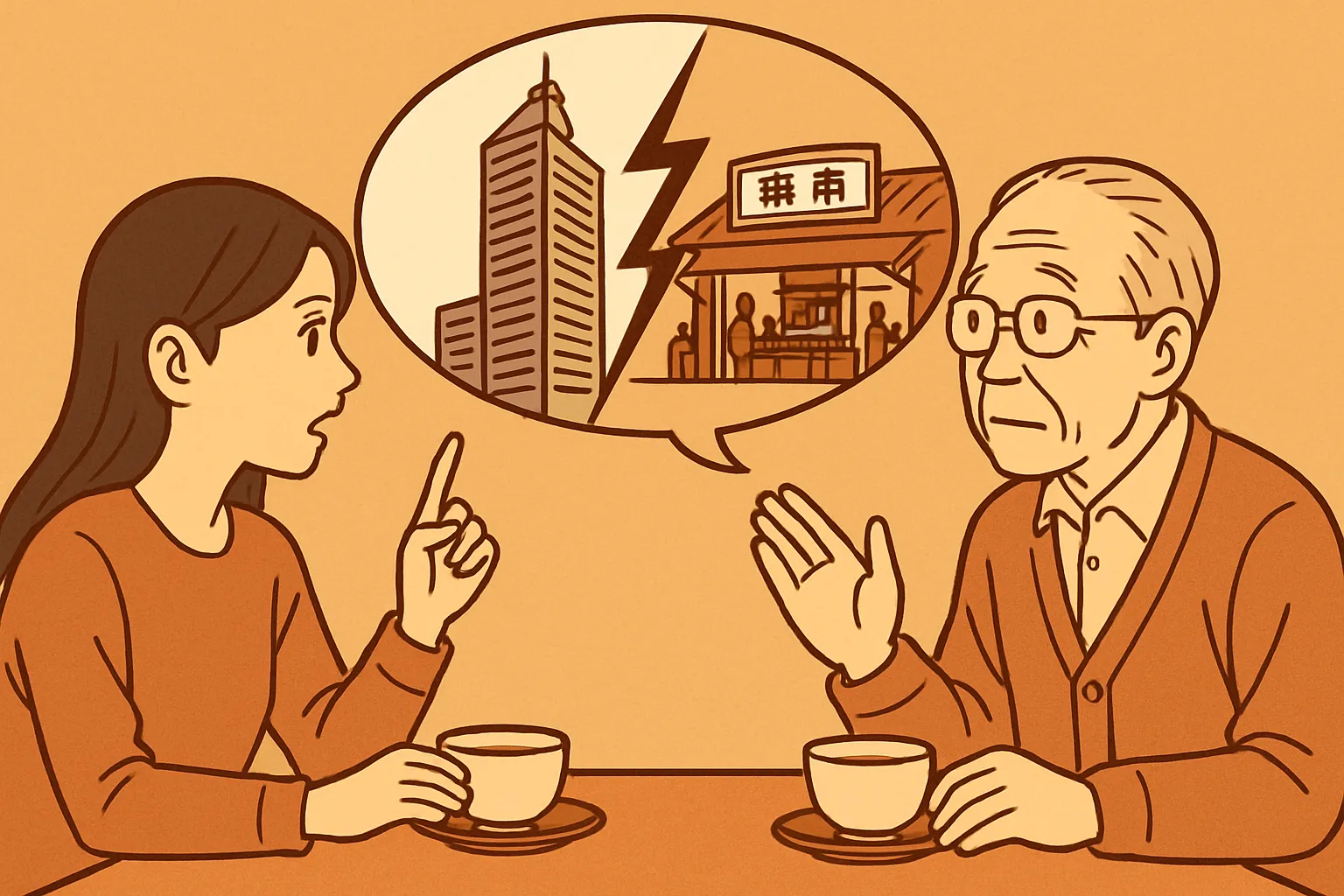Book a Tour Like a K-Drama Star!
안녕하세요! Welcome to [Maeil Hangeul], your friendly guide to leveling up your Korean skills!
Have you ever watched a K-drama and thought, “Wow, I wish I could go there”? You’re not alone! Lately in Korea, visiting beautiful filming locations from hit dramas like Queen of Tears has become a massive trend. People love going on these “healing tours” to experience the scenery for themselves.
Today, we’re going to learn the essential Korean phrases you need to book one of these amazing tours. Let’s get you ready for your own K-drama adventure!
Key Expressions for Your Tour
Here are the key phrases that will help you book the perfect tour and sound like a pro.
1. Recommending a Tour
- 한국어 표현: 혹시 추천해 줄 만한 투어 있어요?
- 발음 [로마자]: Hoksi chucheonhae jul manhan tueo isseoyo?
- 영어 뜻: Do you happen to have any tours you can recommend?
- 상세 설명: This is a polite and natural way to ask for recommendations. 혹시 (hoksi) means “by any chance,” which makes the question softer. -ㄹ/을 만하다 is a useful grammar pattern meaning “to be worth doing.” So you’re literally asking, “Is there a tour worth recommending?”
- 💡 발음 꿀팁 (Pronunciation Tip):
The word 추천해 (chucheonhae) starts with ‘ㅊ’ (ch). This is an “aspirated” consonant, meaning you should release a strong puff of air when you say it, like the ‘ch’ in “chair.” Hold a piece of paper in front of your mouth; it should flutter when you say [chu] correctly!
2. Asking for Availability
- 한국어 표현: 그 투어 예약 가능한가요?
- 발음 [로마자]: Geu tueo yeyak ganeung-hangayo?
- 영어 뜻: Is it possible to book that tour?
- 상세 설명: A direct and essential question! 예약 (yeyak) means “reservation” or “booking,” and 가능한가요? (ganeung-hangayo?) is a polite way to ask “Is it possible?”. You can use this for many things, like “주차 가능한가요?” (Is parking available?).
- 💡 발음 꿀팁 (Pronunciation Tip):
Listen closely to 가능한가요 [ganeung-hangayo]. The ‘ㅎ’ (h) sound in ‘한’ is very weak or even silent when it’s between two voiced sounds (like ‘ㅇ’ and ‘ㄱ’). So, instead of a strong “han” sound, it sounds more like [ganeung-an-gayo]. This is a common rule that will make your Korean sound much more natural!
3. Asking for the Price
- 한국어 표현: 한 사람당 얼마예요?
- 발음 [로마자]: Han saramdang eolmayeyo?
- 영어 뜻: How much is it per person?
- 상세 설명: Time to talk money! 한 사람 (han saram) means “one person,” and the magic word here is -당 (dang), which means “per” or “each.” You can attach it to other units too, like “한 시간당 (han sigandang)” for “per hour.”
- 💡 발음 꿀팁 (Pronunciation Tip):
This is a perfect example of a linking sound rule called 연음 (yeoneum). The last consonant of a syllable, in this case, ‘ㅁ’ (m) from 사람 (saram), moves into the empty ‘ㅇ’ spot of the next syllable, 당 (dang). So, you don’t pronounce it as “saram / dang,” but smoothly as [sa-ram-dang].
4. Making the Reservation
- 한국어 표현: 그러면 두 명 예약해 주세요.
- 발음 [로마자]: Geureomyeon du myeong yeyakhae juseyo.
- 영어 뜻: Then, please book it for two people.
- 상세 설명: You’ve made your decision! 그러면 (geureomyeon) means “Then…” or “In that case…”. 두 명 (du myeong) is “two people.” The -아/어 주세요 (a/eo juseyo) ending is the polite way to say “Please do…” something for me.
- 💡 발음 꿀팁 (Pronunciation Tip):
The word 명 (myeong) is a counter for people. The ‘ㅕ’ (yeo) vowel can be tricky. It’s a combination of ‘ㅣ’ (i) and ‘ㅓ’ (eo). Try saying “ee-uh” very quickly. That’s the sound! It’s not “my-ong,” but [myeong].
예시 대화문 (Example Dialogue)
Let’s see how these phrases work in a real conversation. Imagine Alex is at a hotel concierge desk, asking for help.
- Alex (A): I loved the scenery in the K-drama Queen of Tears! I really want to visit the filming locations. 혹시 추천해 줄 만한 투어 있어요?
(Hoksi chucheonhae jul manhan tueo isseoyo?) - Concierge (B): Of course! The Queen of Tears filming location tour is very popular right now. It’s a one-day trip.
- Alex (A): That sounds perfect! 그 투어 예약 가능한가요? I’d like to go tomorrow.
(Geu tueo yeyak ganeung-hangayo?) - Concierge (B): Let me check… Yes, there are seats available. 한 사람당 90,000원입니다.
(Han saramdang gumaneuonimnida.) - Alex (A): Great! 그러면 두 명 예약해 주세요.
(Geureomyeon du myeong yeyakhae juseyo.)
문화 팁 & 트렌드 심층 분석 (Culture Tip & Trend Deep Dive)
In Korea, going on a “드라마 촬영지 순례” (deurama chwaryeongji sullye), or a “drama filming location pilgrimage,” is a huge hobby for people of all ages.
After a show becomes a hit, these locations often become famous tourist spots overnight. It’s not just about taking a photo; it’s about reliving the emotions of the drama. When you’re there, you’ll see many Koreans recreating famous scenes for their Instagram photos!
So, when you use the phrases we learned today to book a tour, you’re not just being a tourist—you’re participating in a modern Korean cultural trend. Mentioning a specific drama you love will definitely impress the locals and show you’ve done your homework!
마무리 및 연습 문제 (Wrap-up & Practice)
Great job today! You’ve learned four essential phrases for booking a tour in Korea, from asking for recommendations to confirming your reservation. Now you’re ready to explore the beautiful spots you’ve seen on screen!
Let’s test your knowledge:
- Fill in the blank: The tour costs 50,000 won per person.
투어는 ______ 50,000원이에요.
- Your turn! You found a “Seoul City Night Tour” online. How would you ask a hotel concierge, “Is it possible to book that tour?”
Let us know your answers in the comments! And tell us: What kind of tour would you love to take in Korea? Use one of today’s phrases






